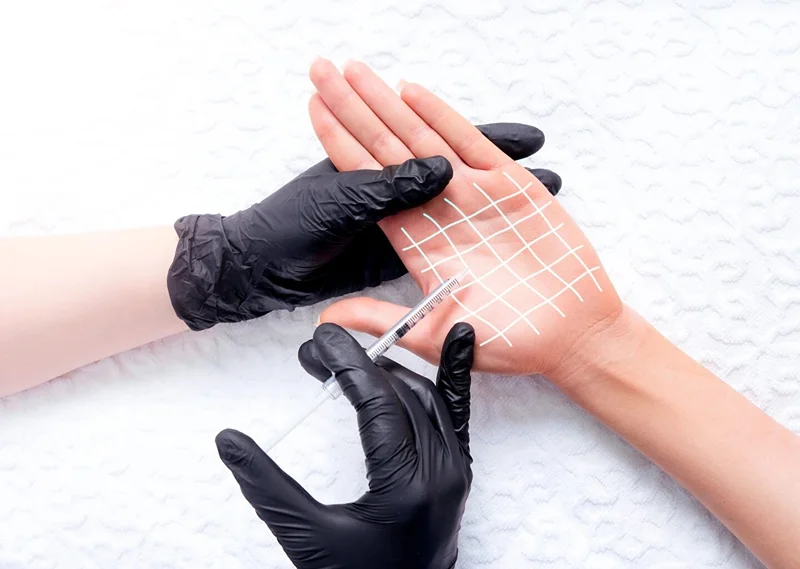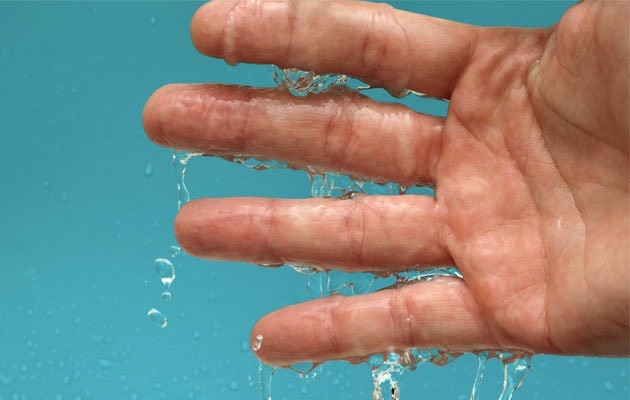Targeted Dermatology Treatments for Hyperhydrosis of Hands and Feet: Effective Solutions
Targeted Dermatology Treatments for Hyperhydrosis of Hands and Feet: Effective Solutions
Blog Article
Recognizing the Origin of Excessive Sweating and Its Influence on Life
Too much sweating, also understood as hyperhidrosis, is a problem that influences a significant part of the populace, yet its hidden reasons and implications on everyday operating continue to be somewhat enigmatic. While it is typically comprehended as a physiological action to manage body temperature, the triggers for excessive sweating can vary commonly amongst people, incorporating not just physical factors however additionally psychological and psychological aspects. Moreover, the effect of this problem expands past plain discomfort, often influencing social communications and overall lifestyle. By delving right into the origin of hyperhidrosis and discovering its complex results, a deeper understanding of this pervasive concern can be gained, shedding light on the intricacies that people facing too much sweating browse on a daily basis.
Physiology of Sweat Glands
The law of sweat manufacturing, an important physiological procedure, is mostly controlled by the task of sweat glands dispersed across the body. Sweat glands are classified into 2 primary kinds: eccrine and apocrine glands. Eccrine glands are the most countless and are discovered in nearly all locations of the body. They play an important duty in thermoregulation by secreting a watery liquid onto the skin's surface area, which evaporates and aids cool the body down. In contrast, apocrine glands are focused in areas abundant in hair follicles, such as the armpits and groin, and their secretions are thicker and milklike in look.
When the body temperature level increases, either due to physical activity, heats, or emotional anxiety, the nerves causes the gland to generate sweat. This sweat is composed largely of water and electrolytes like salt and chloride. The process of sweat manufacturing is necessary for keeping the body's inner temperature within a slim, ideal range, highlighting the crucial role gland play in human physiology.
Triggers for Excessive Sweating
In recognizing the origin of extreme sweating, it is crucial to determine the triggers that can bring about this physiological reaction. Extreme sweating, also referred to as hyperhidrosis, can be motivated by different variables, both physical and environmental. One usual trigger is emotional tension or stress and anxiety, which can promote the body's sweat glands to create more sweat than is required for cooling. Physical exertion, high temperatures, and spicy foods are also known to trigger excessive sweating in people vulnerable to this problem. In addition, particular clinical problems like menopause, hyperthyroidism, or diabetes mellitus can contribute to excessive sweating as well.
Moreover, medications such as some antidepressants, opioids, and particular supplements can additionally function as triggers for hyperhidrosis. Comprehending these triggers is essential in taking care of extreme sweating properly - Treatment for hyperhydrosis of hands. By determining and addressing the certain triggers that prompt extreme sweating in an individual, healthcare carriers can establish tailored treatment strategies to reduce this problem and boost the individual's lifestyle
Medical Conditions Associated
Connected with extreme sweating are numerous medical problems that can exacerbate this physiological action. One usual condition is hyperhidrosis, a condition identified by abnormally boosted sweating that exceeds the body's thermoregulatory demands. This can manifest in focal areas like the palms, soles, underarms, or face, influencing a person's lifestyle because of social shame and pain.
Additionally, endocrine disorders such as hyperthyroidism, diabetes, and menopausal warm flashes can additionally lead to extreme sweating. Hyperthyroidism causes an overproduction of thyroid hormones, increasing metabolic rate and activating sweating.
Additionally, infections like endocarditis, hiv, and tuberculosis have actually been connected with night sweats, an usual sign known to interfere with sleep and affect total well-being. These clinical conditions highlight the diverse series of underlying factors that can contribute to excessive sweating, necessitating comprehensive evaluation and administration by healthcare professionals.
Psychological and emotional Elements

Influence On Social Communications
Extreme sweating can have extensive effects on an individual's capability to engage pleasantly in social interactions. The visible indications of sweat stains or damp patches on apparel can result in humiliation and self-consciousness, causing individuals to withdraw from social circumstances. This withdrawal can affect connections, limit social tasks, and prevent specialist and personal growth.

Moreover, the anxiety and self-worth problems coming from excessive sweating can impact communication and social skills. Individuals might battle to focus on discussions, get involved in group tasks, or share themselves confidently. This can lead to feelings of isolation and isolation, as social links become challenging to keep.
Final Thought

While it is frequently comprehended as a physiological response to regulate body temperature level, the triggers for extreme sweating can vary widely amongst people, including not only physical variables yet likewise emotional and psychological elements. By diving into the root creates of hyperhidrosis and discovering its multifaceted results, a much deeper understanding of this pervasive concern can be gotten, dropping light on the intricacies that people grappling with excessive sweating browse on an everyday basis.
Physical exertion, high temperature levels, and spicy foods are likewise known to trigger too much sweating in individuals vulnerable to this condition. By identifying and resolving the particular triggers that motivate extreme sweating in an individual, health care suppliers can develop tailored treatment strategies to minimize this condition and enhance the individual's high quality of life.
Too much sweating can have profound impacts on a person's capacity to engage easily in social interactions.
Report this page